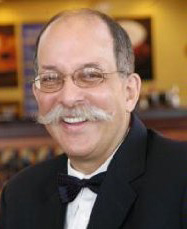The Butlers Speak
Managing Contractors, Part 2 of 2
by Steven Ferry

When it comes to managing contractors, communication is the key, meeting with the site manager to nip any problems in the bud. Some butlers/HMs hover over the contractor, while others do pop-ins to check on progress—depending on the level of follow-through or supervision expected by the principal. A window-washing contractor lost a long-term contract because one of their employees placed a wet and dirty cloth on an antique chair—a fact noticed because the HM was on the ball. Some butlers/HMs prepare a list of the items to be worked on, which is appreciated by the contractors because it helps keep them organized. One HM advises on larger projects to hold one or more meetings with the various contractors to discuss the timeline and expectations for each trade, so they can coordinate and follow a realistic timeline—and the HM then sends each a copy of the timeline, including the completion date.
Then there is the question of keeping the contractors motivated for timely performance and quality work, especially in more remote areas where the company culture may tend toward the lackadaisical (lacking enthusiasm and determination) because they enjoy a monopoly. Tools to assist include a combination of the initial briefings; having open communication lines to the butler/HM, which includes insisting on obtaining the employer’s input on any unexpected changes; regular pop-in visits (often with the property staff who work in the area so they can also monitor the work) during which the butler/HM can ask questions and contractors can explain what problem they are facing and how they plan to fix it. In other words, showing interest, engagement, and granting them the courtesy of being the experts, and generally expecting them to do the right thing as a result. A bonus structure for work a) well done and b) completed on schedule also speaks to those vendors and their staff who are motivated primarily by money.
Once a contractor has proven himself, butlers and HMs tend to stick with them, even if they are more expensive, because their reliability and quality of work are priceless.
Along the same line, and in unison as if they had rehearsed their responses together, the butlers and household managers surveyed all agreed on one point—some of them quoted below:
“I want to build a trusted relationship, and that takes time and energy. It also needs to be nurtured because when people see this extreme wealth, it can create a reason to take extra time to complete their tasks.” DS
“I feel a large part of my job is to develop relationships with contractors. I’m the person they interact with on a routine basis, so I keep it very professional while also being friendly. In order to do my job effectively, I need contractors I can depend upon. I’m flexible in my schedule when need be, but when I have an emergency I do expect them to respond promptly.” NS
“I have always found that treating all people with kindness works best. If a company is working on your trees and it’s 100-degrees outside, pick up a few bottles of cold water for the staff. As the old saying goes, ‘You catch far more bees with honey than with vinegar.’ A kind word goes a long way. So does surprising the crew with a couple dozen donuts once in a while to have with their coffee.” PW
The Institute is dedicated to raising service standards by broadly disseminating the mindset and superior service expertise of that time-honored, quintessential service provider, the British Butler, updated with modern people skills, and adapted to the needs of modern employers and guests in staffed homes, luxury hotels, resorts, spas, retirement communities, jets, yachts & cruise ships around the world.”

